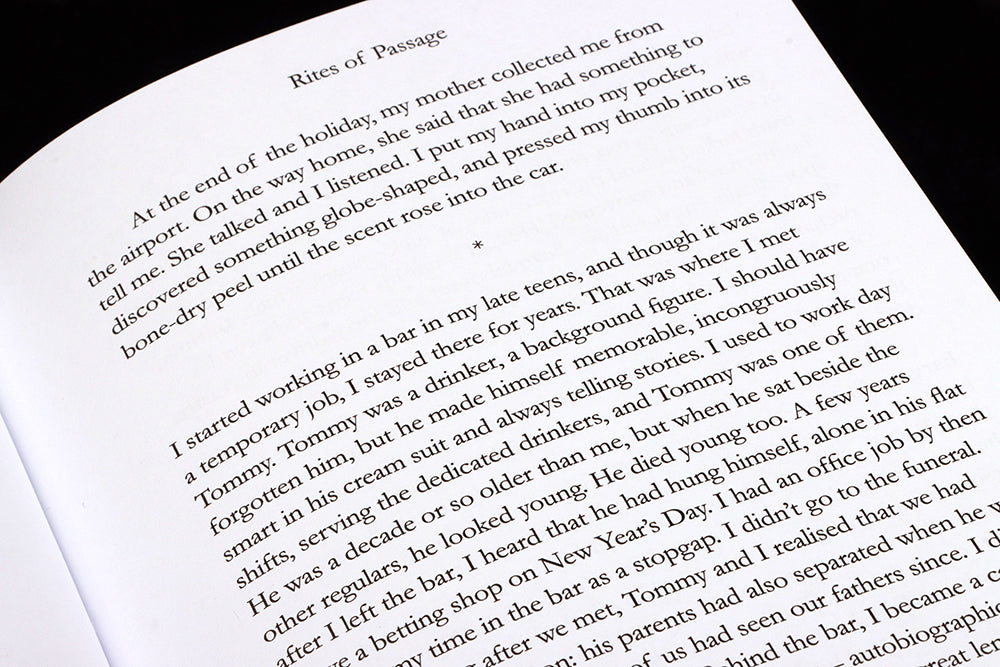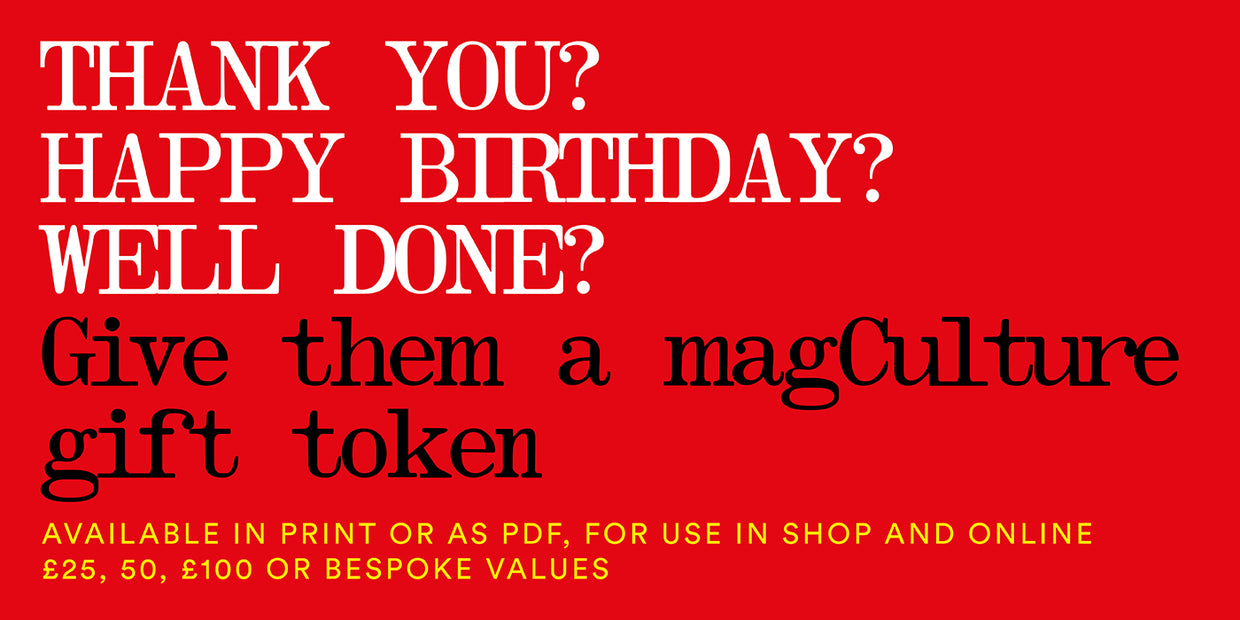
Somesuch Stories #6
This bookish annual magazine is always a treat, packing strong, commissioned writing and art in an ever-developing but always neatly designed format.
Published by US-UK film production company Somesuch, this sixth issue is themed ‘Flux’. As editor Suze Olbrich explained when she dropped copies off at our shop, it’s a theme selected to reflect the state of our world today. Luckily the stories in the issue are more a distraction from than a reaction to today’s depressing news cycles.
The magazine looks and feels as good as ever, the rich cover image by Elio Mercer printed on a textured paper and the logo added in silver foil. Inside, half-size pages drop quotes from stories randomly through the pages.
But we’re focusing on the written content here; our latest Close-up extract comes from Daisy Hildyard’s contribution, ‘Rites of Passage’.

‘Many years ago, Daisy’s extended essay, ‘The Second Body’, proved one of those rare and lasting reading experiences that leaves you seeing the world and your place within it in a completely different way,’ Suze explains, ‘The short story she proposed in response to the issue's ‘Flux’ prompt was to be an experiment.
‘She hoped to construct a piece where a non-human actor, an animal or, perhaps, plant, which is being moved along a globalised pathway, slowly comes to the fore as the main protagonist. The challenge to herself being to make that creature or vegetable as intriguing to the reader as the human characters.
‘Pitched by a lesser-skilled writer, those unknowns would have been editorial red flags. But with someone as brilliant as her, frankly, it was a no-brainer to let her figure it all out on the page for us. Naturally, she nailed it.’


Over to Daisy…
I started working in a bar in my late teens, and though it was always a temporary job, I stayed there for years. That was where I met Tommy. Tommy was a drinker, a background figure. I should have forgotten him, but he made himself memorable, incongruously smart in his cream suit and always telling stories. I used to work day shifts, serving the dedicated drinkers, and Tommy was one of them. He was a decade or so older than me, but when he sat beside the other regulars, he looked young. He died young too. A few years after I left the bar, I heard that he had hung himself, alone in his flat above a betting shop on New Year’s Day. I had an office job by then and saw my time in the bar as a stopgap. I didn’t go to the funeral.
Not long after we met, Tommy and I realised that we had something in common: his parents had also separated when he was nine years old, and neither of us had seen our fathers since. I didn’t talk about it much. Tommy did. Behind the bar, I became a captive audience for what he called his live poems – autobiographical but highly embellished tales, delivered fluently and at great length, in erratically rhyming couplets. Some were about Tommy’s memories of his father, a few concerned his time in prison, but most of his stories were Odyssean escapades drawn from his travels across southern Europe and northern Africa as a lorry-driver, usually involving vividly described encounters with other lorry-drivers, from which Tommy, using fiendish cunning, managed to escape both sexually satisfied and with his liver and kidneys intact.
The sex-acts he described were various and lurid, but the sex felt incidental and somehow strained as though Tommy himself was left cold by the human body. The idea of organ-harvesting, in contrast, really seemed to haunt him. He sometimes referred to it in conversation too, and I wondered whether some unspeakable truth lurked behind the many tales of lucky escape which, fretfully, he invented and reinvented. He had spent his teens and twenties sporadically employed as a farm labourer and lorry-driver in Austria, then Spain, then Morocco, working in vineyards and industrial orchards. One year, he worked for an agribusiness that manufactured citrus products, staying on from season to season, harvesting bitter oranges, leaves for essential oil and blossom. The flowers were the earliest spring job and the most delicate. Harvesting them was difficult work, Tommy said, because it required patience.
There were a few other men on the field for the blossom harvest that year, mostly family friends of the farm manager, but labourers were divided into working groups and Tommy was the only man in his. He was also the only European: most of the seasonal workers came from Tunisia and Libya. The smallest person in each group was supposed to climb the tree and shake down the flowers while the others stood below, holding out a white sheet, to catch flowers. Tommy was taller than most of the women in his group, and yet he was elected to climb the tree. The branch was thorny; it scratched his palms and made green and brown stains on his cream-coloured clothing. Tommy was still resentful about this – he believed he had been mistreated because he was a white man and said that his garments had been irreparably damaged. He held up his palms when he described the thorns, as though the scratches that the orange tree had made might still be visible. Bastard, he said – referring to the tree. Then he asked for a free drink, as he always did at the end. The performance wasn’t a gift, it was an object for exchange.
Editor Suze Olbrich
Art direction Lydia Garnett
Copy editor Natasha Onwuemezi
Design Thomas Coombes/Guest Editions


